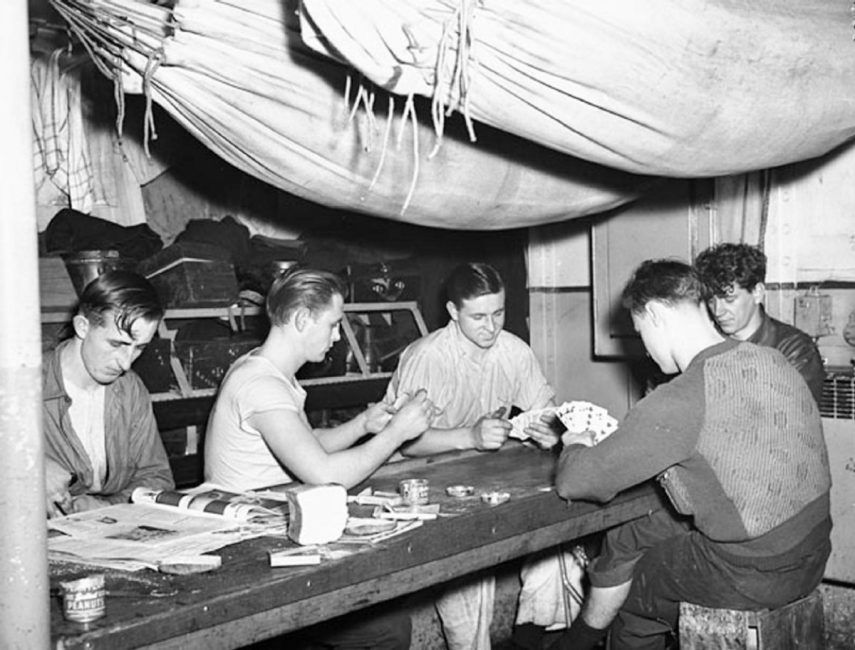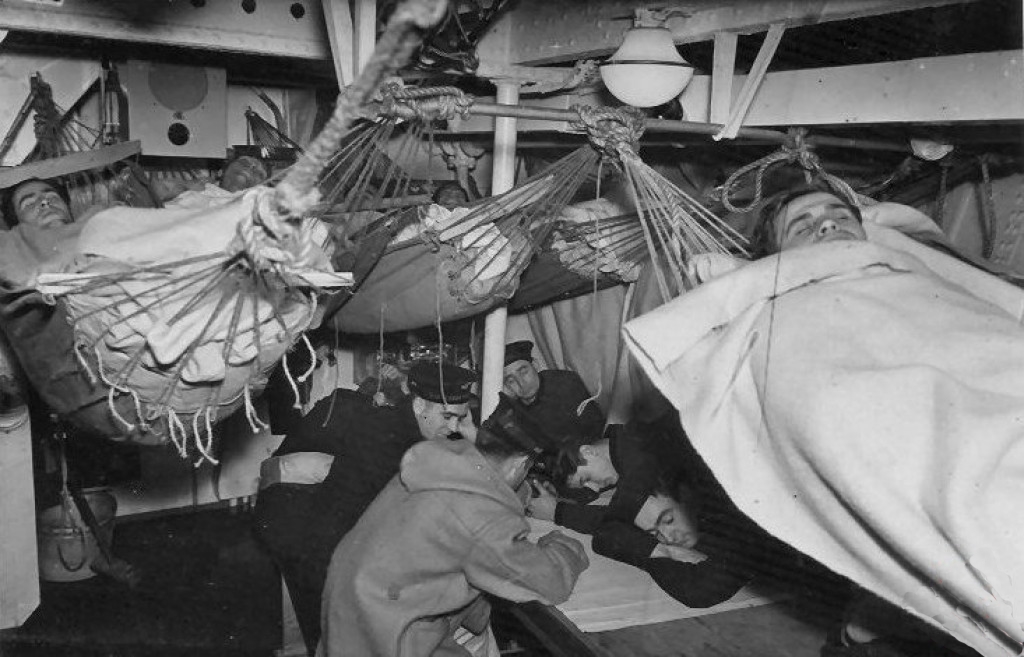|
Life on a Destroyer - - Clarence Mitchell http://www.veterans.gc.ca/eng/remembrance/those-who-served/diaries-letters-stories/second-world-war/cmitchellI have been asked several times what it was like sailing in one of the small fighting ships on the North Atlantic. I can only tell what it was like on a World War I four-stacker destroyer. They were never intended to spend two or three weeks on end in the open North Atlantic. They were wretched to live in. Fresh water, food, bread, and milk were gone in a few days. The mess decks where the sailors lived, ate, and slept when they could, were below the sea level. Sound travels in water a long way. You could often hear depth charges and other explosions going off miles away. The living quarters were overcrowded more-so when crew size grew to man new equipment. Sea water always found its way in. Condensation dripped from the deck head. Bedding and clothing were always wet. The stench of unwashed bodies, vomit, and oil that seeped from fuel tanks was everywhere. It was bitter cold and wet up top, and there was no steam heat below. We were always hanging on to things because the ship was always slamming into rough seas, shuddering and heaving.  
There was no end to the noise, and we were exhausted and sick. No one ever took their clothes off at sea. You never knew when we might hit a mine, an action station, or be struck by a torpedo. Fresh water was limited to drinking and cooking. There was not enough for washing, and there were no showers aboard. We cleaned and showered when we got to harbour. That is when we would be hooked to a dockyard water supply. Toilets at sea were flushed with sea water. Each day, two guys were on mess duty. Their job was to go to the galley and bring food down then, after the meal, wash the dishes. On occasion, when throwing the dish water over the side, all the silverware went into the ocean. That's when it was a battle to steal some from another mess. That was hard to do because every mess guarded their silverware pretty closely. But the worst part was if the ship lurched, and the dishpan went over also. I have seen us washing dishes with the pail we scrubbed the deck with. |